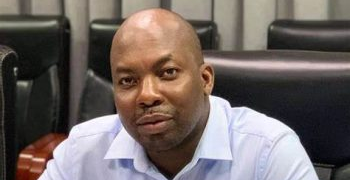Dr. Elikplim Kwabla Apetorgbor, a Power Systems Economist, has urged the Public Utilities Regulatory Commission (PURC) to compel the Electricity Company of Ghana (ECG) to cease billing consumers on what he describes as a “subjective basis.”
According to Dr. Apetorgbor, this practice compromises transparency and accountability, core principles the PURC is mandated to uphold. He has called for an urgent overhaul of ECG’s billing and customer engagement protocols to promote fairness and improve consumer trust.
Highlighting flaws within the system, Dr. Apetorgbor noted, “While the government has frequently blamed the Independent Power Generators (IPGs) for exacerbating the financial strain on ECG, the reality is that ECG’s challenges are, to a large extent, a result of government-induced inefficiencies.”
The economist pointed out the problematic execution of the Self-Help Electrification Programme (SHEP), which aimed to expand electricity access but failed to integrate new meters into ECG’s billing database.
This failure has led to substantial revenue loss, leaving ECG struggling to maintain financial stability.
The SHEP initiative, intended to bridge the electricity access gap, has inadvertently caused long-term damage to ECG’s finances due to poor oversight and coordination.
The inability to capture a significant number of installed meters has created a revenue “black hole,” effectively allowing free electricity usage by some consumers while inflating costs for others.
Dr. Apetorgbor stated, “This unbilled consumption represents a significant and irrecoverable loss in revenue, placing an unjustifiable strain on ECG’s finances.”
In response, Dr. Apetorgbor emphasized that PURC must act decisively to enforce proper integration of SHEP meters and end arbitrary billing practices. He called for the government to take responsibility for its role in this issue, instead of shifting blame onto IPGs.
“A systematic review of SHEP, with enhanced data coordination, is crucial for sustainable electricity distribution and to prevent further erosion of public trust,” he concluded.

















